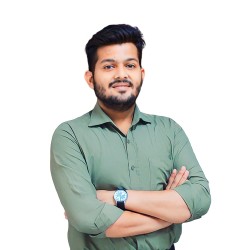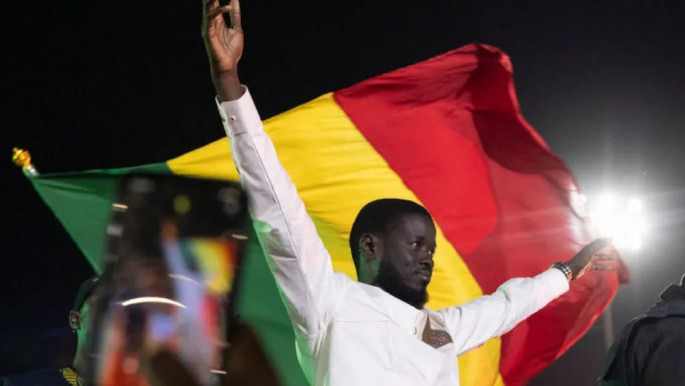A jailed stranger is now Africa's youngest president
It is surprising that Basiru Diomaye Fayer, who recently spent 11 months in prison and previously spent a long time shadowing Suhred Ousmane Sonko, has been elected President of Senegal.
The rise of Basiru Diomae Faye is a fascinating narrative for Senegal's turbulent politics that has surprised many.
বিশ্ব Read more from
The parliament of Kuwait was dissolved
Saudi king invites another 1 thousand Palestinians to Hajj
Discovery of new Earth-like planets habitable by humans
Faye and her brother Usmane Sonko were in jail months ago. But they were unexpectedly released just a week before Senegal's presidential election.
Fay, nicknamed 'Mr Clean', has to focus on the reforms he has promised. 'Tax Collector' Basiru Diomaye Faye, described as methodical and modest, celebrated his 44th birthday on Monday (March 25).
Faye spent a large part of her life in the village of Ndiaganiyaot where she still works in the fields every Sunday. As he deeply values rural life, he has a strong distrust of Senegalese elites and establishment politics.
"He's never been a minister and never been a statesman. So critics question his lack of experience. But according to Fay, Senegal's incumbents since the 1960s have made some big mistakes that have caused serious problems," analyst Alyun Tin told the BBC.
Faye's main mission is to fight poverty, injustice and corruption. While working at the Treasury, he and Sonko formed a union task force to tackle corruption. He believes that contracts related to gas, oil, fishing and defense must be done for the benefit of the people of Senegal. Faye aims to create a new era of 'sovereignty' and 'transformation', particularly in Senegal's relationship with France.
Senegal's newly elected president (who has not yet taken office) plans to scrap the criticized CFA franc currency, which is pegged to the euro and backed by France. Fay aims to introduce a new Senegalese or regional West African currency. But this change will not be easy.
Aminata Toure, a former prime minister who served under outgoing president Macky Sall, told the BBC: "At first he has to deal with the reality of the budget... but I can see that he has a lot of ambition."
Toure also said strengthening judicial independence and securing jobs for Senegal's large youth population are also Fay's top priorities. Outgoing President Mackie Sall didn't pay much attention to either of these, and it eventually caused problems for him.
Surprisingly, Toure as well as other major political figures in Senegal such as former President Abdoulaye Wade Faye endorsed him two days before the election.
Having recently spent 11 months in jail and previously spent a long time shadowing Suhred Usmane Sonko, Fay's presidency is truly astonishing.
'I am Basiru'
In February, Basiru Diomaye Faye was announced as the 'Plan B' candidate to replace opposition leader Usmane Sonko. Sonko honestly praised Faye, saying there is more to Faye than that. Both men started their politics with the Pastaf Party, worked as tax collectors and went to jail together last year (politically motivated, they claim).
Sonko, who had been convicted of two separate offences, was unable to contest the election, and Faye stood in his place. "I am Basiru," Senko recently told supporters.
"They are flip sides of the same coin," Pastef Party member Mustafa Saare said, echoing Sonko's words.
Some have criticized Faye, saying he is now president for lack of alternatives.
One of Faye's heroes is the late Senegalese historian Cheikh Anta Diop whose work is considered a precursor to Afrocentrism. But to the left he is known for his contribution to Pan-Africanism.
People in the capital Dakar celebrated with honking car horns and music as early election results suggested Faye would be elected.
International markets reacted less positively to Faye's victory as Senegal's dollar bond fell to a five-month low. Reuters reports that investors are worried because they believe Fay could weaken business-friendly policies in Senegal.
The election was supposed to be held last month, but the outgoing president Sal postponed it just before campaigning began. This resulted in violent protests and a democratic crisis. Candidates have less time to prepare as per the newly announced election date. But Faye got just over a week after being released from jail.
Christopher Fomunioh of the National Democratic Institute for International Affairs told the BBC that despite the short campaign period, Senegalese citizens were determined and wanted to vote.
He added, "Senegal wants to ensure that democracy can correct itself and become stronger and more vibrant."
But the real test of Senegal's newly elected president, Basiru Diomay Faye, has now begun.







